Two New Marijuana Dispensaries Set to Open in Escanaba
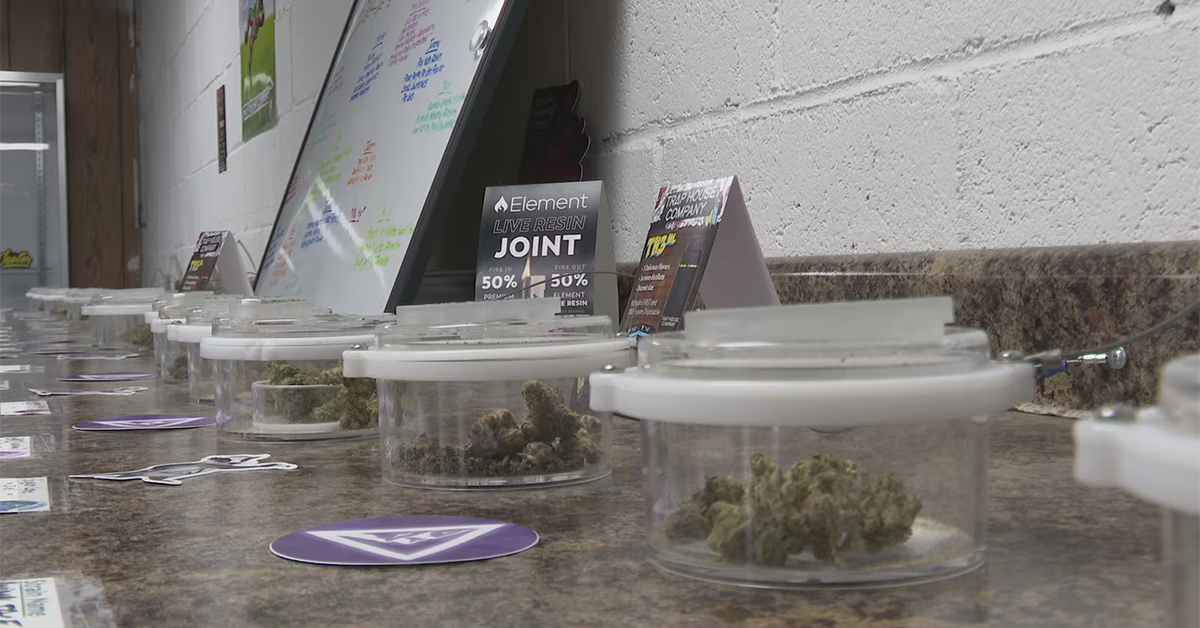
In Escanaba, Michigan, two new cannabis dispensaries are set to open in 2024, bringing a fresh dynamic to the local marijuana industry. The former Hudson's Restaurant building, a well-known local landmark, is undergoing a transformation as it prepares to house The Fire Station, a cannabis dispensary. This new establishment will be located conveniently close to the Nirvana Center, another active dispensary in the area.
The Fire Station, known for its presence in the cannabis market, has announced plans to commence construction of this new facility within the 2024 fiscal year. This development is part of the growing trend of repurposing existing structures for cannabis retail operations, reflecting the industry's integration into local communities.
Additionally, Wacky Jackz is set to open its second dispensary location. Positioned strategically on HWY 2, just at the threshold of Escanaba, this new site is currently under construction. A representative from Wacky Jackz has indicated that the construction is on track, with an expected completion and opening slated for the spring of 2024.
Escanaba's cannabis market is already home to several dispensaries, including Elevated Exotics and Lume. Elevated Exotics is conveniently located downtown at the corner of 10th and Ludington, while Lume is situated on Willow Creek Road. The introduction of The Fire Station and Wacky Jackz will further expand the choices available to consumers in the region, indicating a robust and growing cannabis industry in Delta County.
Nirvana Center to Open as Port Huron's Fourth Cannabis Store in Former Pizza Hut Location
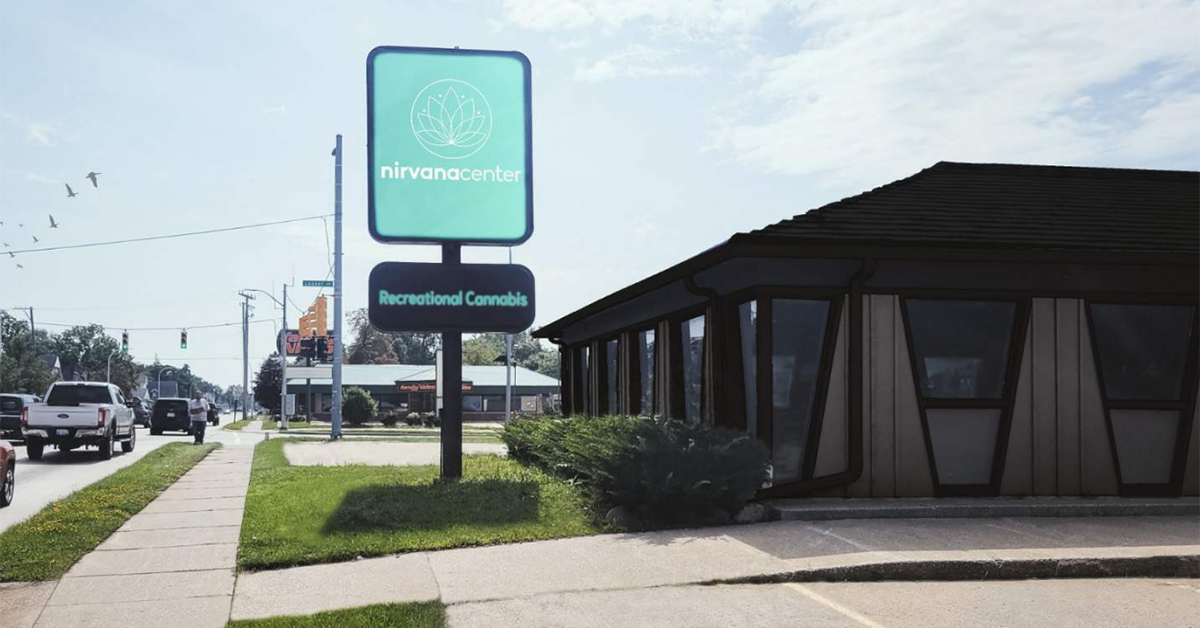
Port Huron, a city known for its vibrant community and dynamic business landscape, is poised to welcome an exciting new addition to its retail sector. Plans are underway for the opening of a fourth adult-use marijuana shop, the Nirvana Center, located strategically at the intersection of 10th Street and Lapeer Avenue. This development represents not just an expansion of the city's cannabis industry but also a significant transformation of a familiar city landmark.
The Nirvana Center, earmarked for the site at 1007 Lapeer Ave, is slated to occupy a substantial 20,800-square-foot space, previously home to a Pizza Hut restaurant. The project, recently greenlit by the city's planning commissioners, involves the repurposing of the vacated storefront. The site is expected to don bright turquoise signage, a visual testament to its new role in the recreational cannabis market.
Morgan Mansour, the project manager overseeing the Nirvana Center's development, spoke about the strategic choice of location. He highlighted the advantages of the site, including its visibility and accessibility due to the existing traffic flow. Mansour emphasized the significance of the investment involved in transforming the site and shared plans to integrate the store into the local community. A key aspect of this integration is the creation of new jobs. The store is expected to employ at least 15 individuals, with the number potentially rising to 20, depending on the balance of full-time and part-time positions. In a nod to local economic development, the project is also looking to engage local contractors for the required construction and renovation work.
The journey of the Nirvana Center in Port Huron is part of a broader narrative involving Revolution Strains, Inc., which initially received local permitting for a retail operation under the city's cannabis ordinance. This ordinance, approved by voters, paved the way for various cannabis-related businesses, including consumption lounges and microbusinesses, to set up shop in the city. However, the implementation of these plans was delayed due to legal challenges. Applicants for local licensure found themselves entangled in litigation, primarily centered around the scoring system used in the ordinance. This legal impasse continued until early 2023, when the original provisional license recipients, including the Nirvana Center, were finally allowed to proceed with their plans.
The approval of the Nirvana Center's special use permit by the planning commission is a critical milestone. This permit, a requirement under local zoning laws, marks the Nirvana Center as the fourth cannabis outlet within the last year to navigate the city's regulatory landscape successfully. This follows the developments of other cannabis retailers in the city, including Exhibit Cannabis, which experienced a fire incident on site, JARS Cannabis located downtown, and Ox Tail Inc., operating under the name Moses Roses in the former Ernest Camera Shoppe. Each of these outlets had planned openings towards the end of the previous year, though as of this week, no official opening dates have been announced.
The choice of the former Pizza Hut location for the Nirvana Center was a strategic shift from the initially planned site at 2569 Lapeer Ave, which was a Peak Performance Oil and Lube establishment. Mansour elaborated on the decision to move locations, highlighting the suitability of the former Pizza Hut site. He noted that under the local licensure ordinance, transferring licenses or changing addresses is permissible, provided the city clerk's office is duly notified.
The Nirvana Center's development at 1007 Lapeer Ave is part of a larger picture, with multiple sites across the city being considered for cannabis retail operations by various operators. One such operator, Portage Acquisitions, Inc., has submitted applications for several sites and has been granted licenses for locations elsewhere in the city. However, unlike the Nirvana Center, Portage Acquisitions has not yet brought a special use request to the planning commission for any of these sites.
During the planning commission's discussion, the plans for the Nirvana Center were reviewed briefly, with Mansour affirming the thoroughness of their preparatory work. He expressed optimism about the timeline for the store's opening, anticipating readiness for operation within 90 days following structural upgrades, particularly to the building's roof. The selection of the former Pizza Hut site over other locations was attributed to its overall suitability for the intended purpose.
The Nirvana Center in Port Huron is poised to become the 14th outlet in the state of Michigan under this brand, with another location set to open soon in Royal Oak. Mansour spoke about the significance of revitalizing the long-vacant site at 10th and Lapeer, bringing a new lease of life to an area familiar to many in the community.
Addressing potential concerns from the community, Mansour assured planning commissioners of comprehensive security measures, including 24-hour surveillance. Additionally, the issue of odor, often a concern in cannabis retail operations, has been proactively addressed with plans to neutralize the air within the store. Mansour confidently stated that the experience of operating multiple outlets has equipped the Nirvana Center team with effective solutions to such challenges, ensuring that their retail operations will not adversely impact the surrounding area.
The introduction of the Nirvana Center to Port Huron's cannabis retail scene marks a significant development for the city. It reflects not only the growth of the cannabis industry but also the adaptive reuse of commercial spaces, contributing to the revitalization of the local economy. This project, with its emphasis on local employment, community integration, and sensitive operational practices, exemplifies a model of business development that aligns with the city's broader goals of sustainable growth and community enhancement.
Pleasantrees Unveils Mystery Weed Contest with a Grand Miami Getaway Prize
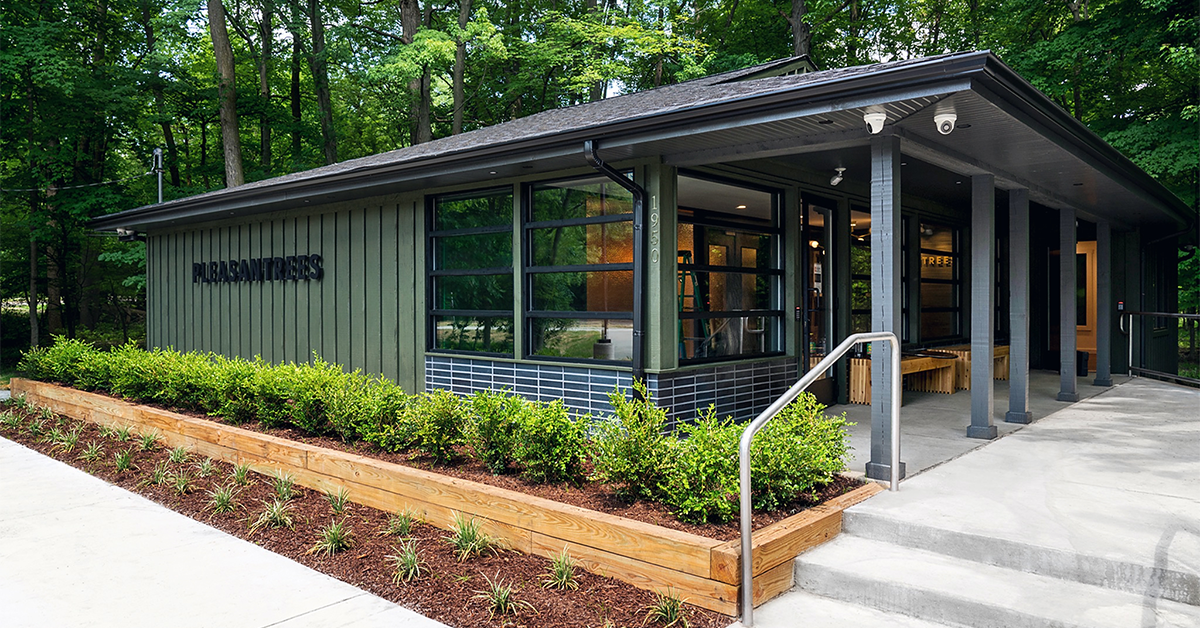
Pleasantrees has launched an innovative contest, the Mystery Weed contest, offering cannabis enthusiasts an engaging way to test their knowledge of various strains. In a unique twist that extends the festive spirit into the New Year, Pleasantrees is introducing mystery strains throughout January, challenging consumers to identify them correctly for exciting rewards.
During this month, Pleasantrees is bringing back four of its most popular cannabis strains, but with a catch: their identities are hidden. To be in the running for the grand prize, participants need to correctly guess all four mystery strains. Those who successfully identify three out of the four will still win a prize – a free ounce of Pleasantrees' premium craft cannabis.
To be eligible for the contest, participants must be members of the Loyaltrees loyalty program at the time of their contest entry. Joining the program is easy and free, accessible through the Pleasantrees app, by texting "JOIN" to (313) 662-2747, or by visiting their rewards website.
The mystery strains will be available for purchase in 1/8th quantities for a limited time. An entry form for the Mystery Weed contest can be accessed via a QR code in-store at the time of purchase. This form will offer a hint for each strain, aiding participants in their guesses. The strains will feature a diverse range of terpene profiles and effects, adding to the challenge and intrigue.
The highlight of the contest is the grand prize – a trip for two to Miami, Florida, which includes airfare and a two-night hotel stay. The contest concludes on January 31st, 2024, and is open to participants 21 years of age or older.
Celebrating Over 10 Years of Service: The Journey of Northern Specialty Health

Northern Specialty Health, a prominent cannabis retailer in the Upper Peninsula (U.P.), has recently celebrated a significant milestone, marking over a decade of operation. Notably, it stands as the oldest independent cannabis shop in the U.P., having been the sole dispensary in the region for many years.
The business saw a change in ownership in 2013 when it was acquired by Penny and Ryan Milkey. Motivated by their personal experiences as patients and caregivers, the Milkeys embarked on this venture to provide essential medicinal options to the local community.
Penny Milkey shared insights into the positive impact their business has had on the community. She recounted testimonials from customers who have experienced improved sleep, better appetite, and overall enhanced well-being since using their products. Notably, some customers have reported reduced reliance on other medications or decreased alcohol consumption.
However, the landscape of the cannabis market has evolved, especially following the legalization of marijuana. This change has led to an influx of dispensaries throughout the county and the U.P., altering the competitive dynamics. According to Penny, while Northern Specialty Health previously attracted customers from beyond state lines, the proliferation of shops at the borders has shifted this trend. Nevertheless, she highlighted the unwavering support from local customers and the continued patronage from out-of-state visitors and tourists.
Despite these market changes, Penny emphasized their commitment to the business and the community. She expressed a strong affinity for both the cannabis plant and the community they serve, underscoring that their operations are driven by a genuine desire to help people.
As Northern Specialty Health continues its journey, the Milkeys remain dedicated to their mission of providing valuable medicinal alternatives and fostering a supportive community around their business.
Buchanan Welcomes Lifted Microgrowery, A New Take on Cannabis Retail and Cultivation
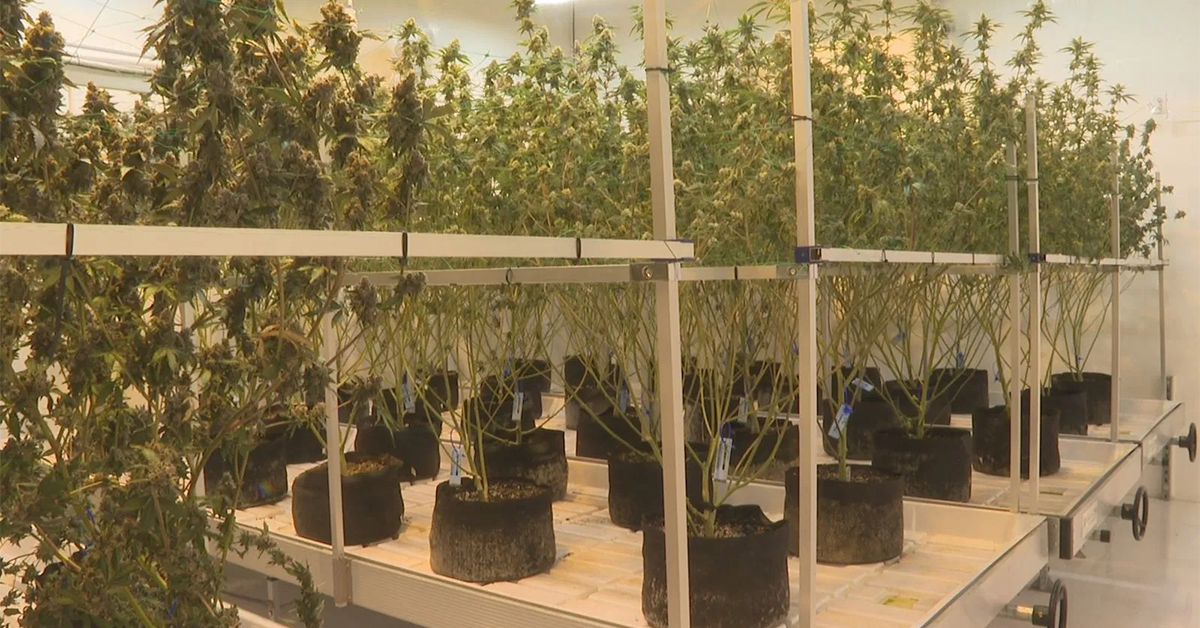
In Buchanan, a novel concept in the marijuana industry is taking root as two entrepreneurial brothers, Michael and RJ Walpole, are on the brink of launching the city's inaugural marijuana microgrowery, aptly named Lifted Microgrowery. This venture, four years in the making, merges the duo's diverse interests and expertise to introduce a distinctive dispensary experience to the local community.
Lifted Microgrowery distinguishes itself with a unique license - the micro business license. This permits the establishment to operate as a small-scale cultivation facility coupled with a retail space. A key aspect of this license is the requirement for all cannabis sold to be grown on-site, precluding the import or export of flower products. This model, while limiting the operation to 300 plants, ensures heightened control over quality, fostering a more intimate approach to cannabis cultivation.
Michael Walpole elucidates this unique approach, explaining that each cannabis strain exhibits distinct growth patterns and characteristics. The microgrowery setting allows for personalized care for each plant, a luxury not typically feasible in larger cultivation operations, where the sheer volume of plants often necessitates a more generalized approach, potentially compromising quality.
Beyond the cultivation aspect, the Walpole brothers are committed to creating an exceptional customer experience in their store. In an industry often focused on transaction efficiency, Lifted Microgrowery aims to deviate from the norm. Michael emphasizes their desire to offer a relaxed, unhurried environment where customers can thoroughly explore their options, engage with products, and make informed decisions without feeling pressured. This commitment to quality extends beyond their cultivation practices to the very experience of shopping at their establishment.
Lifted Microgrowery is set to redefine the dispensary experience in Buchanan, marrying meticulous cultivation with a customer-centric retail approach, all under the ethos of quality over quantity.
Crafting Change One Sip at a Time: Sweet Justice's Socially Conscious THC Drinks
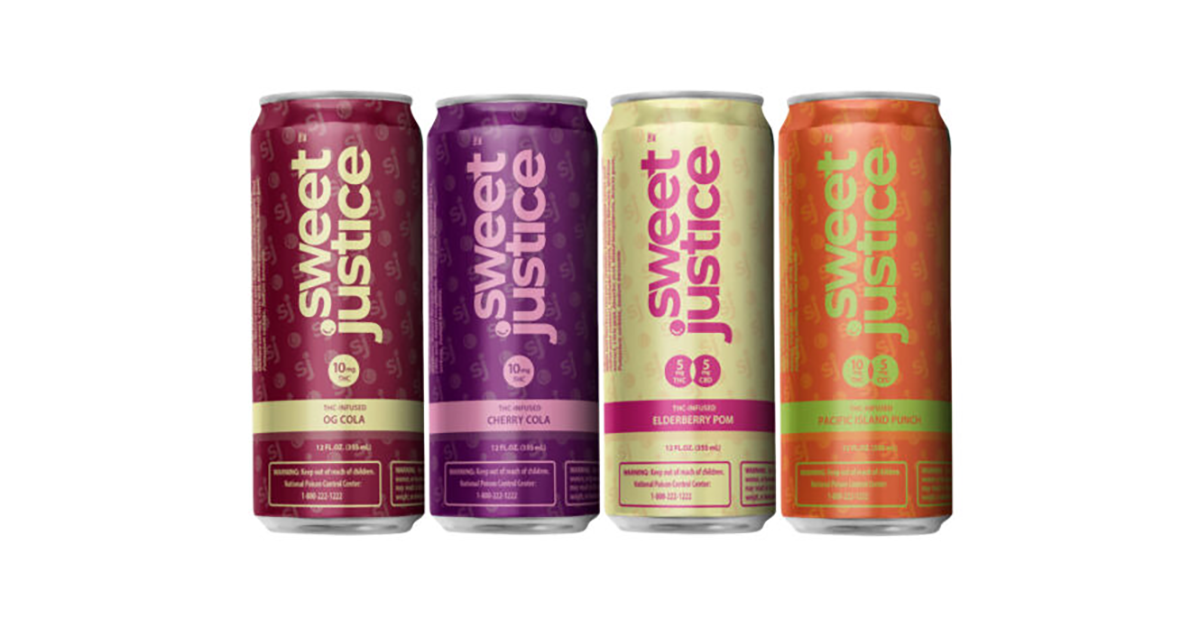
In Michigan, a new line of cannabis-infused social beverages by Sweet Justice is making waves for their unique approach to flavor and community impact. These lightly carbonated drinks are specifically designed to minimize the cannabis taste and aroma, offering a more enjoyable sipping experience. The range includes five distinct flavors: cola, cherry cola, ginger ale, elderberry, and fruit punch, each containing a THC content varying from 1 to 10mg per can.
What sets Sweet Justice apart is not just their product, but their commitment to social responsibility. A significant portion of the revenue from each sale is contributed to the Great Lakes Expungement Network. This alliance comprises local organizations, professionals, businesses, and criminal defense attorneys, all united in their mission to assist Michigan residents with criminal records. They provide essential support for fee-free expungements, helping individuals to remove certain offenses from their records, thereby offering them a chance for a fresh start.
These beverages are particularly marketed towards consumers who are socially conscious and are seeking a flavorful, non-alcoholic alternative. Sweet Justice's combination of taste, social impact, and the growing interest in THC-infused drinks positions them uniquely in the Michigan market.


 Helpful Links
Helpful Links